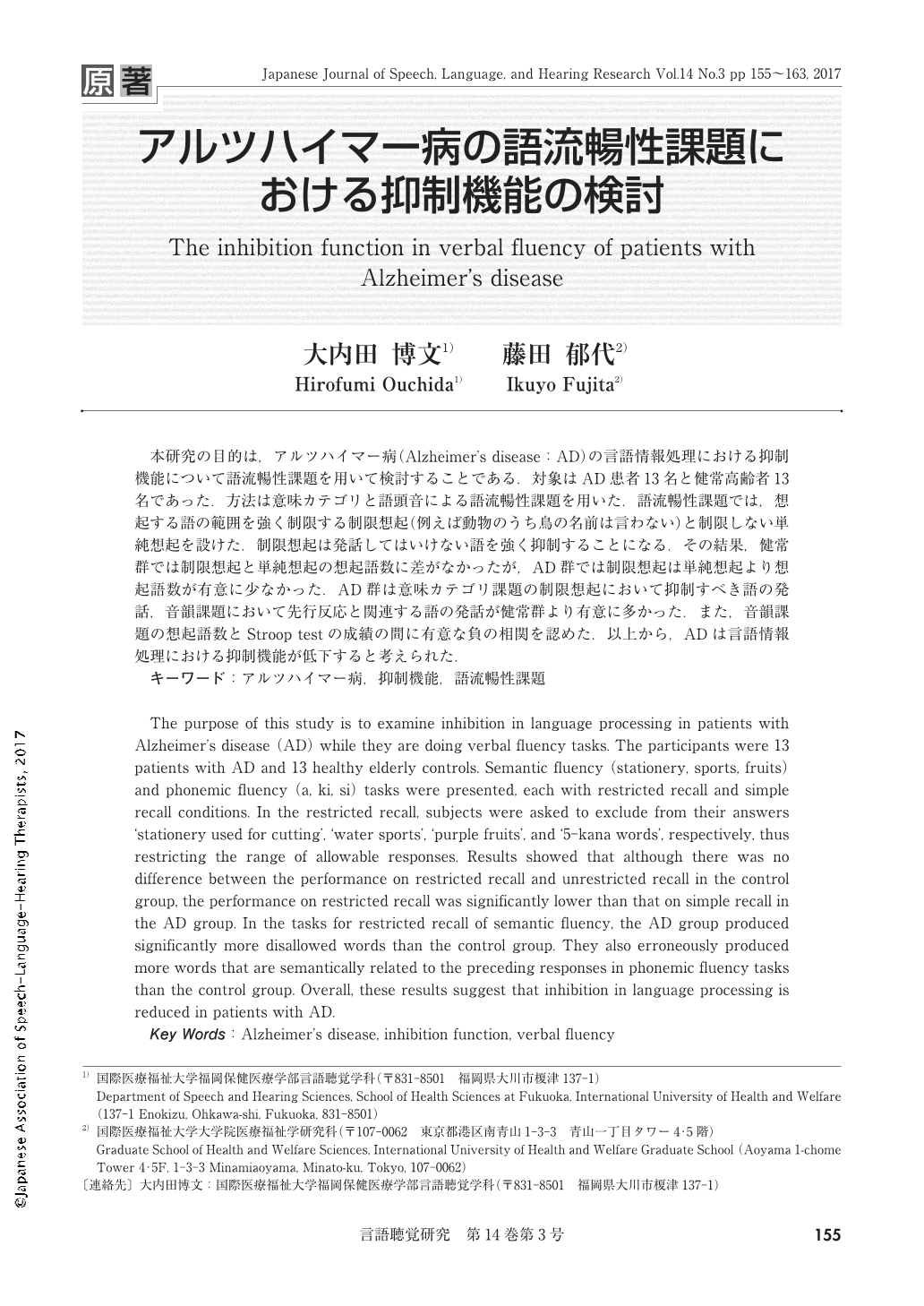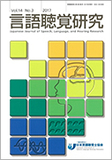Japanese
English
- 有料閲覧
- Abstract 文献概要
- 1ページ目 Look Inside
- 参考文献 Reference
本研究の目的は,アルツハイマー病(Alzheimer's disease:AD)の言語情報処理における抑制機能について語流暢性課題を用いて検討することである.対象はAD患者13名と健常高齢者13名であった.方法は意味カテゴリと語頭音による語流暢性課題を用いた.語流暢性課題では,想起する語の範囲を強く制限する制限想起(例えば動物のうち鳥の名前は言わない)と制限しない単純想起を設けた.制限想起は発話してはいけない語を強く抑制することになる.その結果,健常群では制限想起と単純想起の想起語数に差がなかったが,AD群では制限想起は単純想起より想起語数が有意に少なかった.AD群は意味カテゴリ課題の制限想起において抑制すべき語の発話,音韻課題において先行反応と関連する語の発話が健常群より有意に多かった.また,音韻課題の想起語数とStroop testの成績の間に有意な負の相関を認めた.以上から,ADは言語情報処理における抑制機能が低下すると考えられた.
The purpose of this study is to examine inhibition in language processing in patients with Alzheimer's disease (AD) while they are doing verbal fluency tasks. The participants were 13 patients with AD and 13 healthy elderly controls. Semantic fluency (stationery, sports, fruits) and phonemic fluency (a, ki, si) tasks were presented, each with restricted recall and simple recall conditions. In the restricted recall, subjects were asked to exclude from their answers 'stationery used for cutting', 'water sports', 'purple fruits', and '5-kana words', respectively, thus restricting the range of allowable responses. Results showed that although there was no difference between the performance on restricted recall and unrestricted recall in the control group, the performance on restricted recall was significantly lower than that on simple recall in the AD group. In the tasks for restricted recall of semantic fluency, the AD group produced significantly more disallowed words than the control group. They also erroneously produced more words that are semantically related to the preceding responses in phonemic fluency tasks than the control group. Overall, these results suggest that inhibition in language processing is reduced in patients with AD.

Copyright © 2017, Japanese Association of Speech-Language-Hearing Therapists. All rights reserved.


